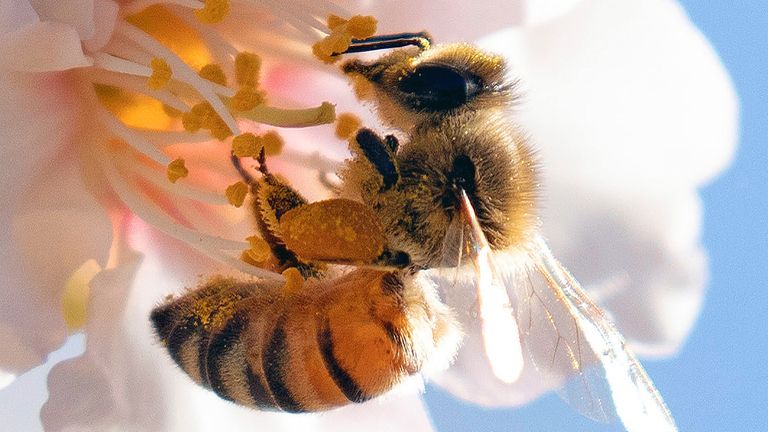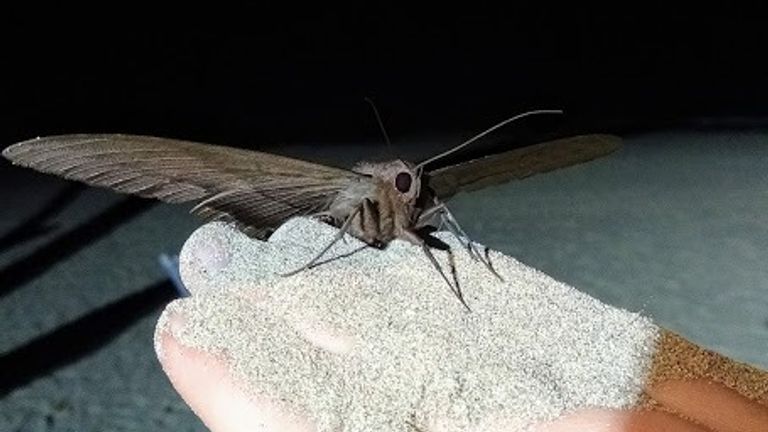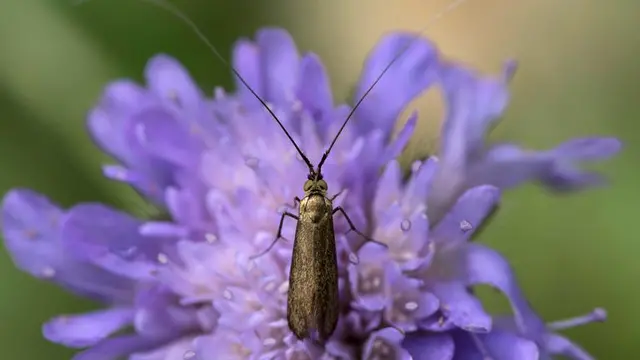Nocturnal moths - often dismissed as pests - have been found to play an important role in supporting crop yields, a study suggests.
The research, published in Biology Letters, shows the insects help to pollinate flowers and plants overnight - and even have larger and more complex networks than daytime pollinators.
Researchers from University College London compared the behaviour of nocturnal moths and daytime pollinators, including bees, hoverflies and butterflies, at nine ponds in Norfolk.

Image:Bees are more commonly known to be pollinators
The insects were surveyed once a month to see which plants they visited and how often.
Of the 838 moths in the study, 45% were found to transport pollen.
They had transported pollen from 47 different plant species, including at least seven rarely visited by daytime pollinators.
By comparison, a network of 632 bees, wasps, hoverflies and butterflies visited 45 plant species, while 1,548 social bees transported pollen from 46 species.
Dr Richard Walton, who was leading the study, said: "While bumblebees and honeybees are known to be super pollinators they also preferentially target the most prolific nectar and pollen sources.
"Moths may appear to be less effective pollinators by comparison, but their high diversity and abundance may make them critical to pollination in ways that we still need to understand.
"Our research sheds light on a little known world of nocturnal plant-insect interactions that might be vital to the look and smell of our precious countryside and to the crops that we grow."
**:: Listen to the Daily podcast on **
Apple Podcasts
**, Google Podcasts
, Spotify
, Spreaker
**
There has been much anxiety about the decline of bees and the effect this has on crop yields and ecosystems.
But researchers say there should also be a focus on decreasing global moth populations.
Dr Jan Axmacher said: "Nocturnal settling moths - which have many more species than bees - have been neglected by pollination research.

Image:Researchers have urged for moths to be protected
"Our study highlights an urgent need for them to be included in future agricultural management and conservation strategies to help stem declines, and for more research to understand their unique and vital role as pollinators, including their currently unknown role in crop pollination."
Another study by the University of York found moth populations are declining 10% each decade in Britain, commonly believed to be due to light pollution in urban areas and increased agricultural farming.
This decline could mean we are losing vital pollination services at a time when we are only just beginning to understand them.
 简体中文
简体中文

